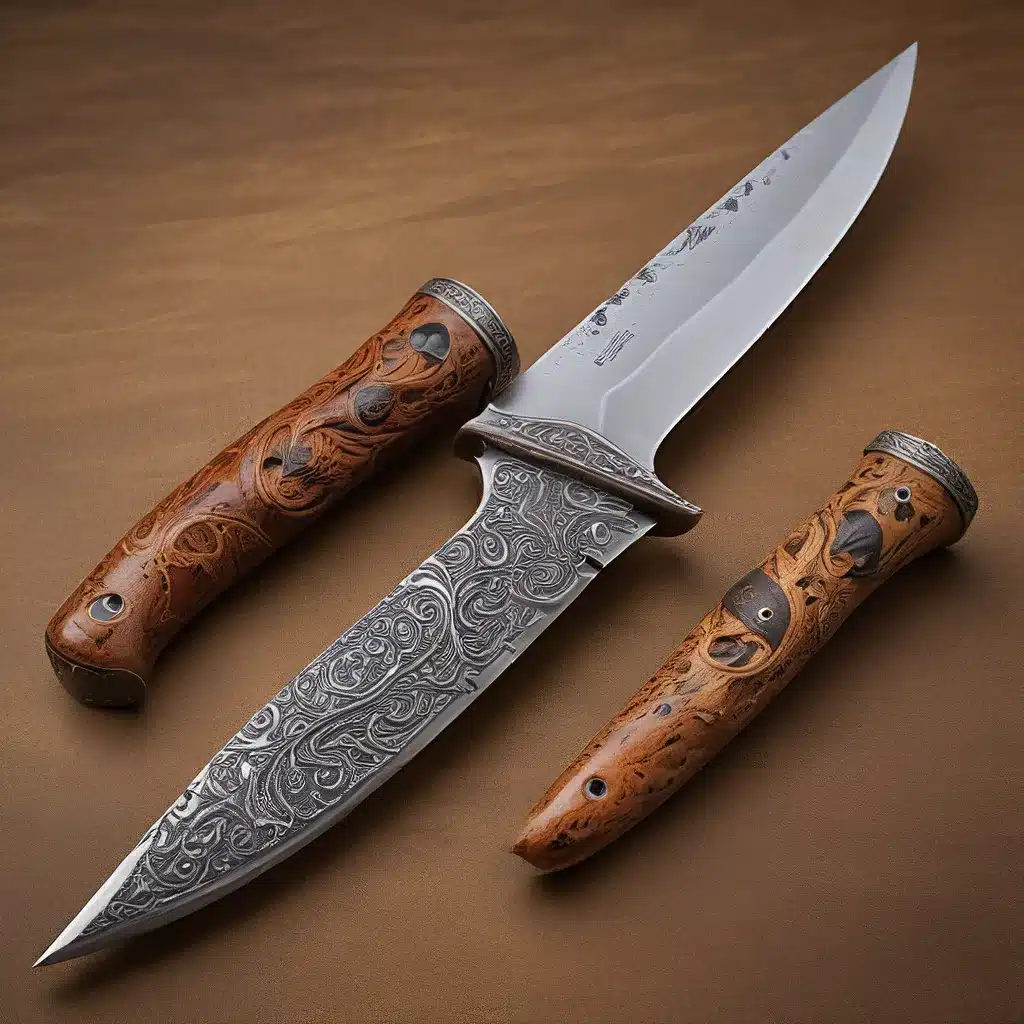
As a passionate knife enthusiast, I’ve always been fascinated by the rich cultural history and symbolic meaning behind these timeless tools. From the ancient Samurai swords of Japan to the bushcraft knives of wilderness survival, knives have played a pivotal role in shaping human civilization. And when it comes to collectible knives, the stories they tell are truly captivating.
Knives: Symbols of Power, Trust, and Connection
Think about it – a knife is so much more than just a sharp blade. It’s a representation of power, trust, and even connection. Throughout history, knives have been associated with authority and status, from government officials to the head of a household. Gifting a knife was seen as a profound gesture, signifying that the recipient could be entrusted with such a potentially dangerous tool.
In certain cultures, the ritual exchange of knives was even used to solidify social bonds, with the shared blade representing the strength and closeness of a relationship. And on a more personal level, a knife can symbolize the giver’s desire to provide protection and independence to the recipient.
The Duality of Knives: From Superstition to Celebration
However, knives have also long been imbued with a sense of superstition and ominous symbolism. The belief that a gifted knife could “sever” relationships or even signify the end of a life has made many wary of presenting them as gifts. The practice of gifting a knife along with a penny, for example, was thought to “turn the gift into a simple transaction” and ward off any potential curses or bad luck.
But despite these long-held superstitions, knives have never lost their appeal as collectible items. In fact, the very same qualities that made them powerful symbols in the past – their sleek design, cultural significance, and association with masculinity – have only served to increase their desirability among enthusiasts and collectors.
Embracing the Dual Nature of Knives
As I delve deeper into the world of collectible knives, I’ve come to appreciate the duality of their nature. Yes, they can be viewed as tools of violence and aggression, but they can also represent trust, protection, and independence. It’s all about understanding the cultural context and the intended meaning behind the gift.
For instance, gifting a chef’s knife to a home cook can be a meaningful gesture, showcasing your trust in their culinary abilities and your desire to help them hone their skills. On the other hand, presenting a bushcraft knife to an outdoor enthusiast can signify your belief in their self-reliance and resourcefulness, empowering them to tackle the challenges of the wilderness.
Collectible Knives: More Than Just Sharp Blades
But the allure of collectible knives goes beyond their practical applications. These prized possessions often feature intricate damascus steel patterns, engraved designs, and unique handles that make them true works of art. Samurai swords, for example, are revered for their stunning visual appeal, with their iconic curved blades and intricate decorative elements.
And for many collectors, the historical and cultural significance of these knives is just as important as their physical attributes. They take pride in owning a piece of history, a tangible link to the stories and traditions that have shaped human civilization.
Celebrating the Craft and Artistry of Knives
As I’ve delved deeper into the world of collectible knives, I’ve been continually amazed by the level of craftsmanship and attention to detail that goes into their creation. From the painstaking forging process to the meticulous finishing touches, each knife is a testament to the skill and passion of its makers.
Take, for instance, the Defender Xtreme 41 Samurai Katana Sword, a stunning example of the enduring appeal of Samurai-inspired blades. With its forged steel construction, unique color schemes, and historical significance, this sword is not just a functional weapon – it’s a work of art that captures the essence of a rich cultural legacy.
Gifting Knives: A Thoughtful and Meaningful Gesture
And when it comes to gifting knives, I believe it’s essential to approach the task with a deep understanding of their cultural and symbolic importance. Rather than simply viewing them as utilitarian tools, we should consider the deeper meaning behind the gift and how it can be tailored to the recipient’s interests and values.
For the outdoor enthusiast, a bushcraft knife might be the perfect choice, symbolizing their spirit of adventure and self-reliance. For the home chef, a high-quality chef’s knife could be a cherished gift, showcasing your belief in their culinary prowess. And for the history buff, a Samurai-inspired sword or collectible tactical knife might be the ultimate treasure, a tangible connection to a bygone era.
Embracing the Complexity of Knives
As I reflect on my journey through the world of collectible knives, I’m struck by the sheer complexity and depth of meaning that these humble tools can hold. From their ancient origins to their modern-day allure, knives have always been so much more than just sharp blades – they’re repositories of cultural heritage, symbols of power and connection, and works of art that captivate the imagination.
And as I continue to explore and collect these prized possessions, I’m excited to uncover even more of their hidden stories and share them with others who, like me, are fascinated by the rich tapestry of human history that these knives represent. After all, when we embrace the duality of knives – their capacity for both utility and artistry, for both power and trust – we can truly appreciate the depth and complexity of these timeless tools.
So, whether you’re a seasoned knife collector or simply someone who appreciates the beauty and significance of these remarkable objects, I encourage you to dive deeper into the world of collectible knives and uncover the cultural treasures that lie within. Who knows what fascinating stories and connections you might discover along the way?

